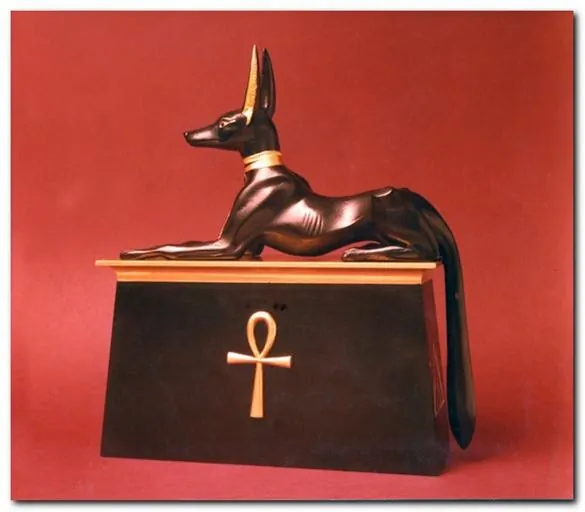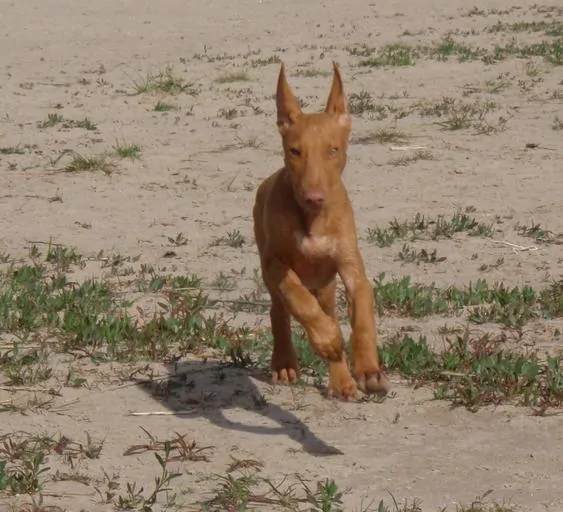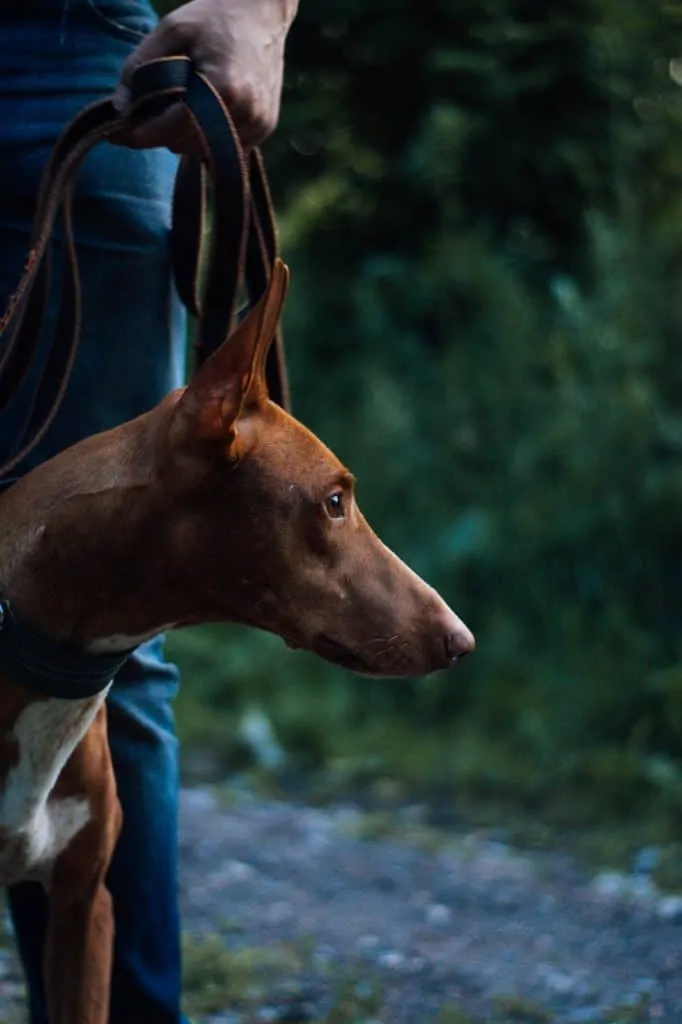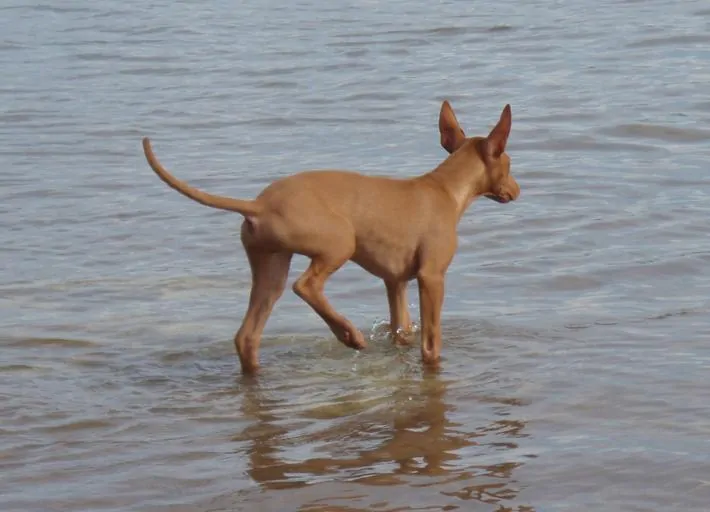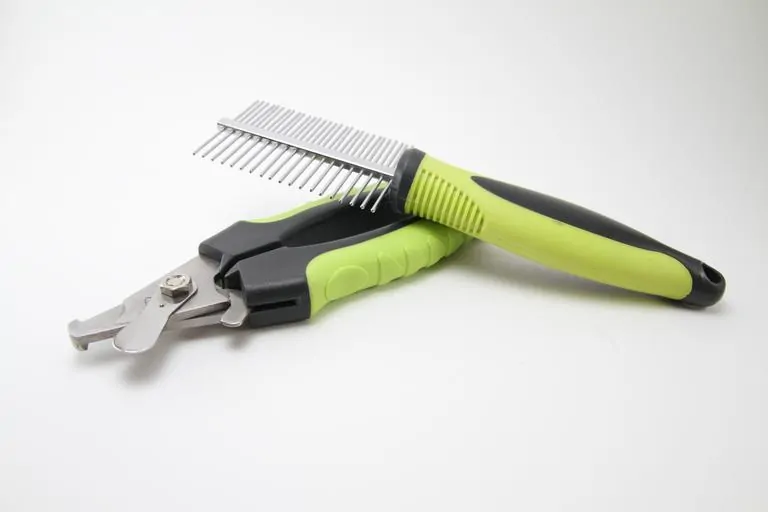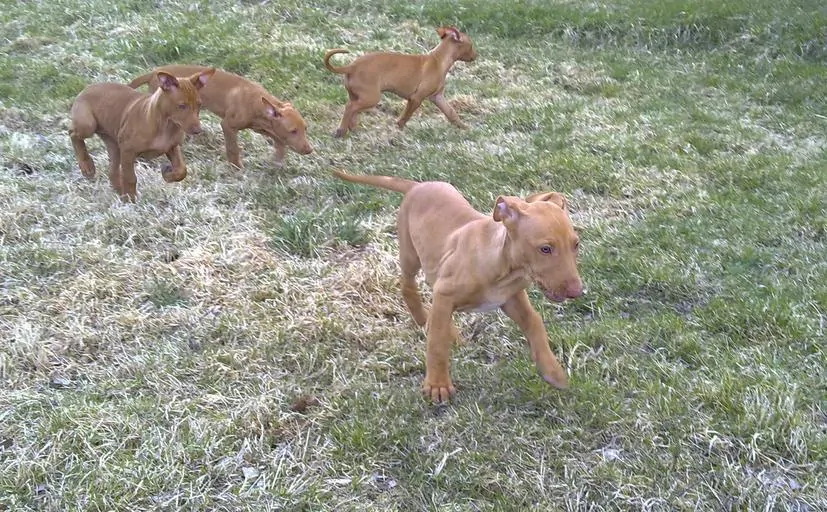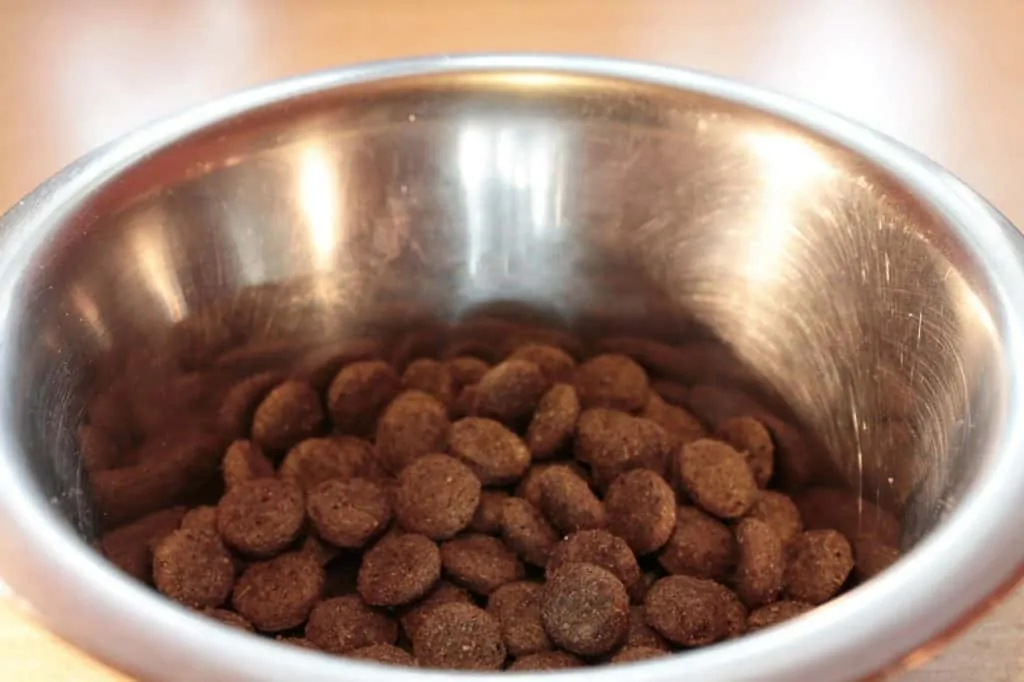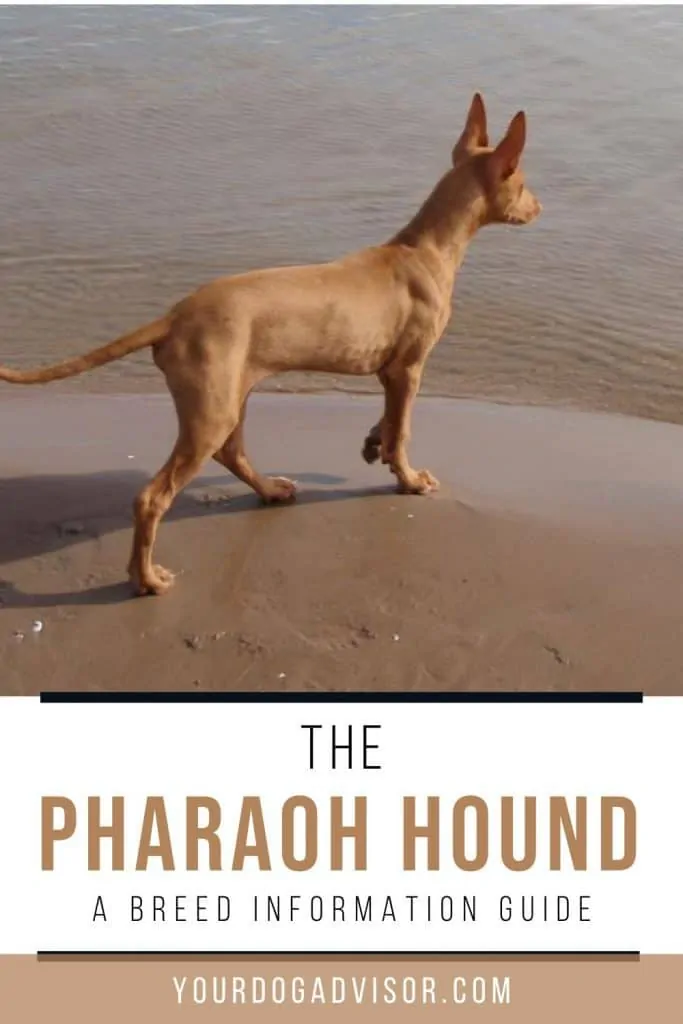Beautiful, unique, and incredibly trainable, the Pharaoh Hound is a hound unlike any other. This is a dog breed that is suitable for families, singles, and active outdoor enthusiasts, but it is certainly not the ideal dog breed for everyone.
In today’s article, we are going to learn more about this incredible dog and help you decide if the Pharaoh Hound would make the right addition to your family, home and lifestyle.
Let’s get started.
Contents
The Pharaoh Hound At A Glance
The Pharaoh Hound is a medium sized hunting dog.
The Pharaoh Hound is an ancient hunting dog designed to travel over miles of rough terrain in pursuit of smaller prey. They are lean, muscular, and sharp as a tack. Intelligent and obedient, Pharaoh Hounds love to learn and are eager to please.
However, they are also easily distracted by smaller animals they deem as prey and their hunting instincts are quick to take over. For this reason, it’s important never to walk or run your Pharaoh Hound without a leash and harness.
These dogs are incredibly expressive, and are even known to blush. This is a trait unique to the Pharaoh Hound, whose face will “glow” when he becomes excited, happy or playful.
Pharaoh Hounds get on well with children and other dogs, but are not suited for homes with smaller pets like rodents, cats or toy-sized canines.
Where Does The Pharaoh Hound Come From?
As his name suggests, the Pharaoh Hound originated in ancient Egypt, where artifacts and relics depicting him have been found.
The Pharaoh Hound is arguably one of the oldest dog breeds in the world. In fact, relics and artifacts depicting this breed have been discovered in tombs of Egyptian kings. This is a breed who, no surprise by his name, originated in ancient Egypt. From there, the breed expanded to Malta, where it was used as a diverse and valuable hunting dog.
It’s primary prey was rabbit, and as such the Pharaoh Hound had to be impossibly fast. His lean, well-muscled body makes him an excellent runner, and his pointed muzzle, erect ears, and incredible sight allows for him to spot and go after clever rabbits from far away.
The Pharaoh Hound was so beloved in Malta that he was eventually named as their national hound in 1979. Shortly thereafter he was introduced to the United States, being officially registered by the American Kennel Club in 1983.
Today, the Pharaoh Hound makes an excellent companion for young, active singles or families, ranking in at number 172 out of 196 on the American Kennel Club’s list of America’s most popular dog breeds.
What Are The Pharaoh Hound Temperament And Personality Traits Like?
Pharaoh Hounds are very high energy and have a high prey drive.
Bred for independent hunting, the Pharaoh Hound is surprisingly trainable and affectionate. He adores his people and is known to be gentle and loving with children. However, he has been known to show aggression to other dogs of the same gender if not properly trained or socialized.
That said, the Pharaoh hound can get on well with other dogs so long as they are around his same size. While trainable, the Pharaoh Hound has incredible hunting instincts that make it difficult for him to be around small pets he might view as prey.
This includes cats, smaller dogs, and of course pets like guinea pigs and rabbits.
The Pharaoh Hound is also incredibly energetic. Owners should be prepared for an active, lively dog who can be quite excitable. He requires plenty of mental and physical stimulation each and every day to stay happy and healthy, and he may not be the best dog for apartment living.
While the Pharaoh Hound does get on well with children, it’s wise to monitor youngsters and this dog to ensure everyone is getting along safely. Children should also be taught how to properly interact with the family dog to ensure they know the respectful ways to play
What Are The Exercise and Training Requirements For A Pharaoh Hound?
Pharaoh Hounds are very active, but should always be walked on a leash due to their high prey drive.
Like all dogs, the Pharaoh Hound needs plenty of training and exercise from an early age. He will also need proper socialization beginning in puppyhood.
Exercise is an important part of your Pharoah Hound’s life and overall health and happiness. Some Pharaoh Hound dogs are natural runners, and will run on their own outdoors for a good 20 to 30 minutes at a time.
If you have a backyard where your Pharaoh Hound likes to run, make sure the fence is secure and at least six feet high. These dogs are fast and agile, and can jump fences any shorter. That said, even a natural runner will need exercise on a leash outside of the yard.
Good walks, runs or jogs twice a day will help maintain your Pharaoh Hounds health. He also makes an excellent hiking companion, though it’s incredibly important to never walk your Pharaoh Hound off leash, as we have mentioned above.
This is a dog who, no matter how well trained, will not be able to ignore his hunting instincts. For this reason, it’s also a good idea to ensure your Pharaoh Hound is microchipped and that he always wears his collar and identification tag.
Make sure this information is up to date to ensure you have a better chance of being reunited with your Pharaoh Hound should he become lost.
Along with proper (and safe) exercise routines, it’s also important to make sure your Pharaoh Hound has plenty of mental stimulation. This is a breed who is highly trainable and eager to please. He loves to learn and is known for his obedience, and will enjoy time spent with you learning new tricks.
Keep these training sessions short, game-like and fun, and refrain from using punishment to correct your Pharaoh Hound if he makes a mistake.
This is a sensitive breed who does much better with positive reinforcement like treats and praise as opposed to scoldings.
Last, remember to socialize your Pharaoh Hound at an early age. This is especially important considering this breed can have a tendency to show aggression towards other dogs of the same sex.
Socialization should include introducing your Pharaoh Hound to as many new sights, sounds, people, places and things as possible.
Try and ensure these first impressions are positive on your Pharaoh Hound, and refrain from forcing him into a situation that clearly frightened him. Instead, let him experience things at his own pace and use plenty of positive reinforcement to help him learn to adapt to new situations, people and surroundings.
What Does A Pharaoh Hound Look Like?
The Pharaoh Hound is known for his graceful, lean build.
The Pharaoh Hound certainly looks like an ancient breed. His small eyes, reddish coat, and blushing face make him an eye-popping companion for any dog fancier.
Take a look.
Pharaoh Hound Height: 21 – 25 Inches
Pharaoh Hound Weight: 45 – 55 Pounds
Pharaoh Hound Coat Color: Tan, red, red golden, chestnut, rich tan
Coat Types: Short, smooth, shedding
Hypoallergenic Coat: No
Overview of The Pharaoh Hound:
The Pharaoh Hound is a unique dog, though not everyone will know one when they see one. This breed is well built and lean, with erect ears, a sharp muzzle, and long limbs. He can have a white-tipped tail and a bronze colored coat that is short. Amazingly, his face is said to “glow” when he becomes excited.
Often referred to as a “blushing” dog, the Pharaoh Hound is easy to read when he is happy or playful. He is a graceful runner, and his eyes are small, almond-shaped, expressive and inquisitive.
How Do You Groom A Pharaoh Hound?
The Pharaoh Hound is a shedding dog, but grooming is relatively low maintenance.
Though his coat is short and glossy, the Pharaoh Hound does shed and requires a bit of maintenance to keep his coat in ship shape. However, for the most part, Pharaoh Hounds are easy to keep up and generally low maintenance.
They shed year-round, but shed most heavily during shedding season, which occurs in spring and fall. During this time, the Pharaoh Hound may need more routine brushing to keep loose hair at a minimum.
Otherwise, brushing once a day with a rubber mit or comb can help remove loose hair and keep your Pharaoh Hound’s coat and skin healthy and shiney.
As self-cleaning dogs, Pharaoh Hounds only need to bathe once every few months unless they get especially dirty. When bathing a Pharaoh Hound, make sure you use a dog-safe shampoo that will not strip your Pharaoh Hound’s skin and coat of the natural oils.
Aside from coat care, your Pharaoh Hound will also need his ears checked and cleaned routinely to ensure they do not develop a buildup of debris, water and wax, as this could lead to ear infections in the breed.
The Pharaoh Hound should also have his nails trimmed often to ensure they do not crack or split during play or exercise, and his teeth should be brushed once a day using a dog-safe toothbrush and toothpaste.
Pharaoh Hound Health Issues
The Pharaoh Hound can be more prone to suffering from cancer at an early age.
Pharaoh Hounds are a relatively long-lived breed, with a lifespan of around 12 to 14 years. Like all dogs, however, the Pharaoh Hound can be prone to suffering from genetic health issues.
These health issues include:
- Hip Dysplasia
- Elbow Dysplasia
- Dental Disease
- Obesity
- Bloat
- Cushing’s Disease
- Intervertebral Disc Disease
- Distichiasis
- Cataracts
- Progressive Retinal Atrophy
- Allergies
- Patellar Luxation
- Epilepsy
- Hemivertebrae
- Hypothyroidism
- And Cancer
According to the National Breed Club, The Pharaoh Hound Should undergo the following recommended health screenings:
- Hip Evaluation
- Thyroid Evaluation
- Patella Evaluation
- Ophthalmologist Evaluation
Now, let’s take a closer look at some of the more serious issues your Pharaoh Hound could face below.
Bloat
Bloat is a serious and life threatening condition that can come on suddenly in dogs. It occurs when gas or air gets into the intestines, causing the stomach to flip. This is an emergency condition that requires immediate professional care.
Symptoms of bloat include unproductive retching, excessive drooling, panting, a bloated abdomen, obvious pain, pacing, and eventual collapse.
You can prevent bloat by ensuring your Pharaoh Hound does not eat too quickly or too much, and refrain from letting your Pharaoh Hound eat or drink immediately after exercise or playtime.
Cancer
Cancer can be common in all dogs, especially as they age. However, Pharaoh Hounds are more susceptible than other breeds to developing cancer earlier in life. For this reason, routine vet checkups are essential to ensuring your dog grows up happy and healthy.
Obesity
Obesity is another problem for Pharaoh Hounds. This naturally lean and muscular dog requires plenty of routine exercise and a healthy diet to ensure they stay happy and healthy.
Obesity can lead to other issues in the breed including joint issues, so keep your Pharaoh Hound on a quality dog food specified for his age, weight and activity level.
Because Pharaoh Hounds can also be prone to allergies, a diet rich in real animal protein with other limited ingredients can help curb skin issues and improve coat health.
What Are Some Pros And Cons Of Owning A Pharaoh Hound?
As we mentioned in the beginning of this article, not all dogs are right for all people. The Pharaoh Hound is certainly a wonderful companion for the right family, but even then there are going to be pros and cons to owning one of these unique dog breeds that potential owners should consider.
Take a look.
Pros To Owning A Pharaoh Hound:
- These dogs are enthusiastic and athletic
- They love to learn and are eager to please
- Pharaoh Hounds do well with children and other large dogs
- They make wonderful watch dogs
- Pharaoh Hounds are playful and fun-loving
- They enjoy adventures and make excellent companions for outdoor enthusiasts
Cons To Owning A Pharaoh Hound:
- Pharaoh Hounds are very high-energy
- They require routine exercise each and every day
- Pharaoh Hounds can be aggressive towards dogs of the same gender
- Pharaoh Hounds cannot be walked without a leash
- They may not get along with smaller pets like cats and small dogs
- They have a very high prey drive that no amount of training can change
- These dogs can be very vocal
- Pharaoh Hounds can be prone to stubborn tendencies
- They are slow to mature and puppy-like well into adulthood
What Is The Ideal Home Type For A Pharaoh Hound?
The ideal home would have a large, secure backyard where the Pharaoh Hound can run and play freely.
Considered the national hound of Malta, the Pharaoh Hound is relatively rare in other parts of the world. For this reason, not much is known about them in the United States, making it difficult for novice dog enthusiasts to gauge what the best home type and family would be for this beautiful dog.
However, considering what we now know about the Pharaoh Hound, it’s clear to see that this dog is best suited for active, outgoing families with flexible schedules. Pharaoh Hounds will thrive with owners who can take the time to train and exercise them each day, and well do well in homes that have a large yard where they can run freely to get out excess energy.
The ideal home type for a Pharaoh Hound would have lots of secured outdoor space with fences that are at least six feet tall, and owners should be willing to puppy-proof the inside of their home to ensure their Pharaoh Hound is safe.
We should also note that Pharaoh Hounds are not ideal apartment dogs. They can be excessively vocal, and while this makes them wonderful watch dogs, it can make for a problematic situation in small, enclosed spaces.
Choosing A Pharaoh Hound Puppy Or Rescue
It’s important to get your Pharaoh Hound puppy or rescue dog from a reputable breeder or shelter.
While the Pharaoh Hound is a long-lived dog who is relatively healthy, we can also see that he can be prone to a long list of health issues if he is not bred properly.
This is one of many reasons it is so important to go through reputable sources to get a Pharaoh Hound puppy or rescue dog.
Though Pharaoh Hounds are not incredibly common in the United States, there are enthusiastic breeders who should be happy to provide you with a healthy Pharaoh Hound Puppy. On average, Pharaoh Hound puppies cost between $1,500 and $2,500. This price can vary depending on the breeder and the quality of the Pharaoh Hound’s parent breeds.
Remember, a Pharaoh Hound puppy from show quality parents will generally cost more than a puppy bred specifically for companionship.
When going through a breeder, make sure you ask questions. A reputable breeder should be able to provide you with a certificate of health proving their puppies have been health screened and cleared of any serious health issues prone to the breed. They may also be able to give you a look at the Pharaoh Hound puppy’s parent dogs so you can get a better idea of what your Pharaoh Hound puppy will grow up to look like.
If you would prefer to rescue a Pharaoh Hound, you may need to exercise patience and do plenty of research. While these dogs are not a booming breed in the US, there are still a few local shelters throughout the United States who specialize in this specific breed.
Plus, rescuing a dog from a shelter is typically a fraction of the cost of buying one from a breeder. Many quality shelters will also offer a free initial vet exam and lots of rescues have their dogs undergo behavioral testing before putting them up for adoption to ensure they are rescued by the right family.
Whichever route you choose to take when getting your Pharaoh Hound, just be sure it is a reputable one. Refrain from cutting corners or going through backyard breeders or online sellers who are unqualified in the hopes of getting a puppy at a cheaper price.
Doing so could make you the unwitting supporter of puppy mills and even lead to you winding up with a sick puppy. This, in the end, could cost you more in the long run both financially and emotionally.
The Top 5 Products Every Pharaoh Hound Owner Needs
A quality dog food can help reduce skin issues and increase the overall health of your Pharaoh Hound.
Have you decided that the Pharaoh Hound is the perfect pup for you? That’s so exciting! Remember, this is a unique and active dog breed who requires a lot of time, attention, training and exercise, and we want to help.
We have listed five of our favorite products to help you and your Pharaoh Hound start off together on the right foot.
Outward Hound Fun Feeder
[amazon box=”B00FPKNRCS” style=”light” title=”Slow Feeder” template=”widget” ]
A slow feeder, or ‘fun feeder’, as OutwardHound calls it, is a feeder specifically designed to help prevent bloat in high-risk dogs like the Pharaoh Hound. The above feeder makes eating safe and fun for your Pharaoh Hound by ensuring he slows down and takes in his meals slowly.
These feeders are also great for clever dogs like the Pharaoh Hound, who will enjoy the game-like challenge of getting kibbles out from a puzzle feeder. You can order the bowls in a variety of colors and patterns, and they even come with a non-slip base to reduce spilling.
Easy Walk Dog Harness
[amazon box=”B015TNVZEW” style=”light” title=”Easy Walk Dog Harness” template=”widget” ]
Your Pharaoh Hound is going to need routine exercise each and every day, but it’s important to never walk this breed without a quality leash and harness. One of our favorite dog walking harnesses for the Pharaoh Hound is going to be the Easy Walk Dog Harness listed above. This harness is a front-clip harness that reduces pulling and makes walking safer and more fun for everyone involved.
It is also ideal for dogs who tend to dart off after prey, like the Pharaoh Hound. If this occurs, you are less likely to be yanked forward and instead the harness will redirect your Pharaoh Hound back to you.
Blue Buffalo Wilderness LID Dog Food
[amazon box=”B01BM9V2FO” style=”light” title=”Blue Buffalo Dog Food” template=”widget” ]
The Pharaoh Hound can be prone to obesity and is also known to suffer from allergies and skin issues. Luckily, a quality dog food can help reduce these issues in your dog. We recommend quality dog food like Blue Buffalo Wilderness for the Pharaoh Hound breed.
This dog food is poultry-free and high in protein. It includes rich animal proteins like salmon, venison and halibut, all of which can increase coat health. This dog food is designed for dogs who are active and athletic, just like the Pharaoh Hound. It also helps support lean muscle growth and an active lifestyle, which is perfect for this active and athletic dog breed.
EZDOG Tooth Brushing Kit
[amazon box=”B003T8F8MK” style=”light” title=”EZDOG Tooth Brushing Kit” template=”widget” ]
All dogs can be susceptible to dental disease, but the Pharaoh Hound in particular is especially at high risk. For this reason, we suggest investing in a quality dog toothbrush and toothpaste. Sometimes, it’s easier to invest in a toothbrushing kit, so we have listed the EZDOG Tooth Brushing kit above.
This dog tooth brushing kit includes a double-sided toothbrush and a dog safe toothpaste. Routine brushing with the above kit can help reduce tartar and plaque buildup while also freshening your dog’s breath. That said, even with a quality tooth brushing kit it is still wise to keep up with professional dental cleaning, especially for dogs like the Pharaoh Hound.
Rubber Brushing Mit
[amazon box=”B01N9KSITZ” style=”light” title=”Rubber Bushing Mit” template=”widget” ]
Routine grooming can help keep your Pharaoh Hound’s coat healthy and shiney, and luckily all it takes is a few once-overs with a brushing mit. The above rubber bushing mit is designed specifically for short-coated dogs like the Pharaoh Hound and comes in different sizes to fit your hand.
This mit is also easy to clean and simple to store, making grooming care easy and efficient for both you and our Pharaoh Hound.
And that’s it, folks!
We hope this has been a helpful guide on the amazing and diverse Pharaoh Hound. Now, we would love to hear from you.
Would you consider investing in a Pharaoh Hound to call your own? Why or why not? Tell us what you think about this incredible dog breed in the comment section below.
Thanks for reading!
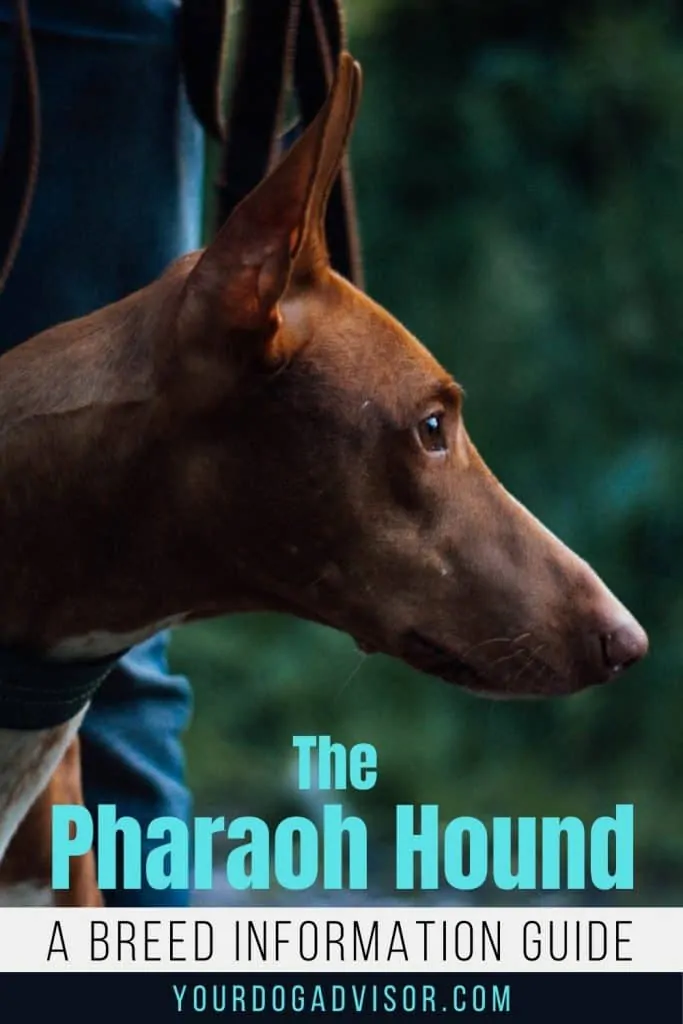

Jen Jones is a professional dog trainer and behavior specialist with more than 25 years of experience. As the founder of ‘Your Dog Advisor’ and the ‘Canine Connection’ rehabilitation center, she applies a holistic, empathetic approach, aiming to address root causes rather than merely treating symptoms.
Well known for her intuitive and compassionate approach, Jen adopts scientifically-proven, reward-based methods, encouraging positive reinforcement over punishment. Jen specializes in obedience training, behavior modification, and puppy socialization. Her innovative methods, particularly in addressing anxiety and aggression issues, have been widely recognized. Jen has worked with many of the world’s leading dog behaviorists and in her free time volunteers with local animal shelters and rescue groups.

